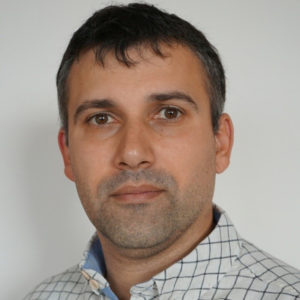T9: Principles of active learning in wireless communications
Organizer: Haris Gačanin, RWTH Aachen University, Germany
Abstract: The next-generation (6G) of wireless communications has led to many advancements in technologies such as large and distributed antenna arrays, ultra-dense networks, software-based networks, and network virtualization. However, a higher level of automation is needed to establish hyper-low latency and hyper-high reliability for 6G applications. Advanced automation requires extensive research on machine learning with applications in wireless communications. Thereby, learning techniques will take a central stage in the sixth generation of wireless communications to cope with the stringent application requirements. This tutorial discusses the practical limitations of reinforcement and deep learning methods in resource management in nonstationary radio environments. We carefully compare supervised (deep) and reinforcement learning models to support rate maximization objectives under user mobility based on the practical limitations. We discuss practical systems such as latency and reliability on the rate maximization. We present a generic dataset generation method for standardized testing in the nonstationary environment to benchmark different learning models versus traditional optimal resource management solutions. We aim to motivate learning agents in the context of optimization in real-time. To this goal, we discuss differences between training-based methods such as deep learning and training-free methods such as reinforcement learning for both matching and dynamic problems.
Organizer’s bio:
 Haris Gačanin
Haris Gačanin
Bio: Haris Gačanin [F’21] received his Dipl.-Ing. degree in Electrical engineering from the University of Sarajevo in 2000. In 2005 and 2008, respectively, he received MSc and Ph.D. from Tohoku University in Japan. He was with Tohoku University from 2008 until 2010 first as Japan Society for the Promotion of Science (JSPS) postdoctoral fellow and later, as an Assistant Professor. He joined Alcatel-Lucent Bell (now Nokia Bell) in 2010 as a Physical-layer Expert and later as Department Head at Nokia Bell Labs. Since April 2020, he is a chair professor at RWTH Aachen University. His professional interests are related to broad areas of digital signal processing and artificial intelligence with applications in wireless communications. He has 200+ scientific publications (journals, conferences and patent applications) and invited/tutorial talks. He is a fellow of IEEE and Distinguished Lecturer of IEEE Vehicular Technology Society. He served as an Associate Editor of IEEE Communications Magazine, the editor of IEICE Transactions on Communications and IET Communications. He acted as a general chair and technical program committee member of various IEEE conferences. He is a recipient of several Nokia innovation awards, IEICE Communications Society Best Paper Award in 2021, IEICE Communication System Study Group Best Paper Award (joint 2014, 2015, 2017), The 2013 Alcatel-Lucent Award of Excellence, the 2012 KDDI Foundation Research Award, the 2009 KDDI Foundation Research Grant Award, the 2008 JSPS Postdoctoral Fellowships for Foreign Researchers, the 2005 Active Research Award in Radio Communications, 2005 Vehicular Technology Conference (VTC 2005-Fall) Student Paper Award from IEEE VTS Japan Chapter and the 2004 Institute of IEICE Society Young Researcher Award.
